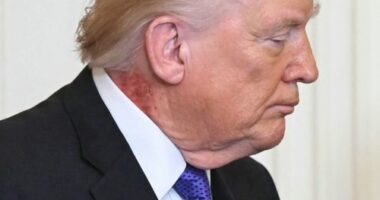Share this @internewscast.com
A majority of Australians are considering taking on a second job or side hustle, according to new research.
Global recruitment firm Robert Walters found 70 per cent of Australian professionals are considering or already working a second job.
In a survey of 2000 people, 90 per cent said they were concerned their salary alone wouldn’t be enough to cover their yearly expenses.

“With the growing pressures on the cost of living, more professionals are considering second jobs, side projects, or even moving to another state to achieve financial security,” stated Shay Peters, CEO of Robert Walters Australia and New Zealand.
“While work-life balance was once a priority, today it’s clear that salary has retaken centre stage.
“People simply can’t afford to stay in roles that don’t pay enough to keep up with their lives.”
The concern surrounding wages has also sparked a wave of interstate migration.
Up to 54 per cent of Australians have considered relocating interstate for better pay, cheaper housing and different career options, the study found.
“Deciding on a place to reside is now beyond personal preference; it has evolved into a strategic choice influenced by financial challenges,” Peters explained.
“Opting for a location where individuals can earn a good income without spending the majority on everyday expenses will play a crucial role in these relocation decisions.”

The study also broke down which states were the most unsatisfied with their salary.
In NSW, 90 per cent of participants said their pay did not match their cost of living.
In Victoria, 84 per cent reported similar concerns.
In Queensland, 83 per cent of participants said they were not satisfied with their salary growth.
In Western Australia, 80 per cent of participants said they had salary concerns.
The research is a “wake-up call” for employers, Peters said.
”This is a warning bell for businesses,” Peters said.
“If salaries don’t reflect the realities of today’s economy, companies will lose skilled talent – either to better-paying roles, second jobs, or to other states.”











